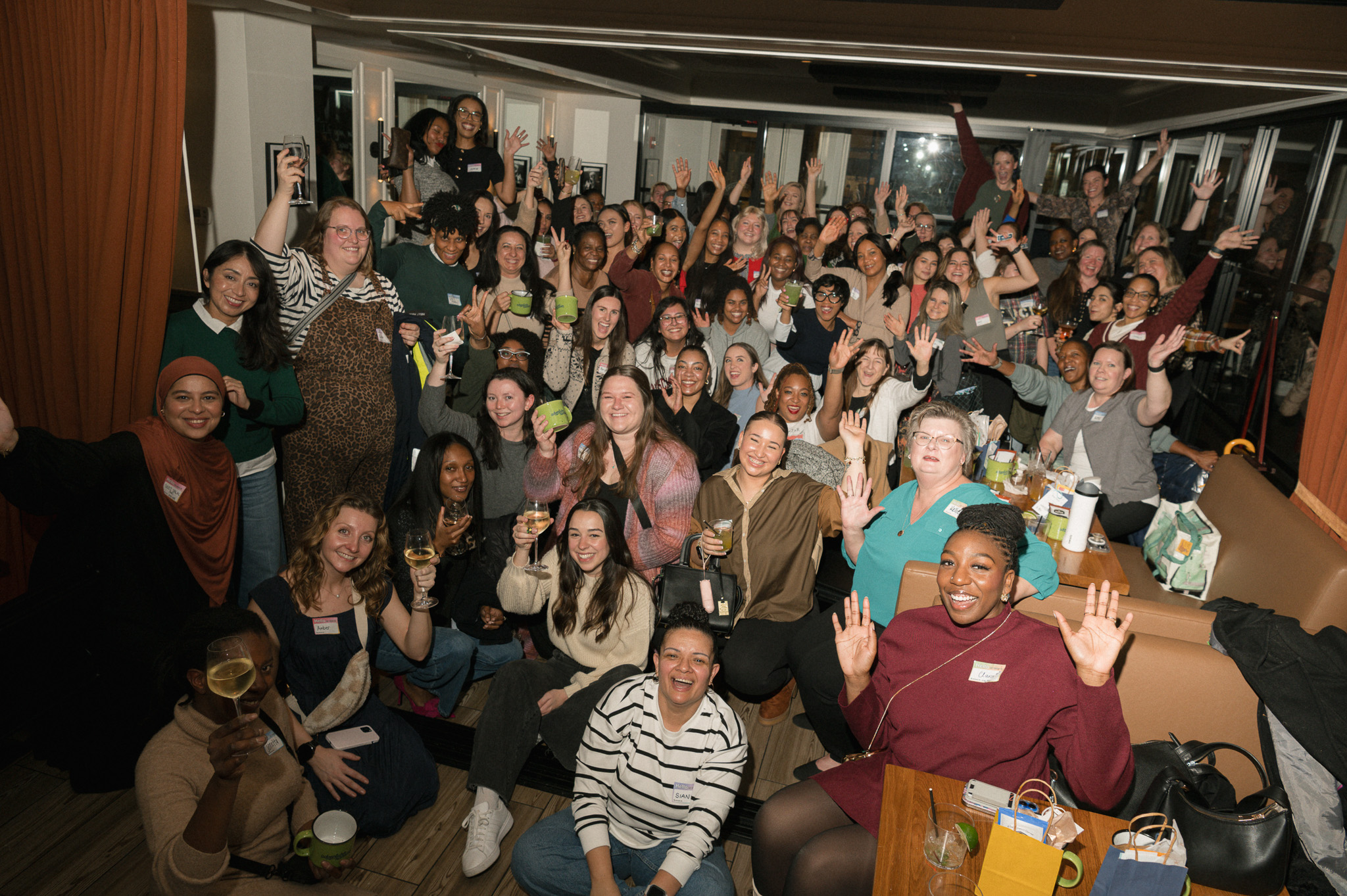AI in Your Job Search: A Nanny's Guide to Landing an Amazing Role
The robots are here...or are they? AI is the buzzword on everyone's lips, promising to revolutionize everything, including how we find jobs. But as a nanny, you might be wondering "is this just another tech fad, or can AI really help me land my dream role?" The truth is, AI can be a powerful tool in your job search arsenal, but like any tool, it can be misused. This guide is your go-to resource for understanding the benefits, risks, and best practices for using AI ethically and effectively. We'll cover everything from optimizing your resume to preparing for interviews, all while maintaining your unique voice and personality. (And don’t worry - we have a hunch nannies will not be replaced by robots any time soon!)
Case Study: The Risks of Over-Reliance
Imagine receiving a cover letter that starts with:

Prompt: Write a cover letter for a nanny position highlighting experience with infants and toddlers, emphasizing creativity and patience.
Seems like a no-brainer to avoid this kind of oversight, right? But you'd be surprised!
Here at Adventure Nannies, we've received real applications from otherwise qualified nannies that we've had to turn down because of oversights just like this. Don't let this be you!
Idt's important that you personally write your application responses. We know how tempting it is to use AI to speed things up, and environmental concerns aside, AI has its place, but when it comes to showing off the amazing you, nothing will ever be better than your own words.
This is your chance to let your unique personality shine, to highlight all of the skills you’ve worked so hard to develop, and to show how genuinely excited you are about this opportunity – a computer just can't capture that magic (and yes, we can tell!) Put yourself out there, let your true self come through, it will make all the difference in helping set you apart from the crowd!
When Is It Okay to Use AI in Your Job Search?
Let’s be real: job hunting can feel like a full-time job in itself. While AI should never replace your own words or experiences, there are a few specific moments where it can be an acceptable tool to help you streamline the tedious parts of the process. Think of it less as someone doing your work for you and more as a proofreader or administrative helper.
Here are a few instances where it’s generally okay to lean on AI, as long as you’re the one in the driver's seat.
- For a Final Polish: After you’ve written your resume or cover letter in your own words, it’s okay to use an AI tool to do a final check for things like grammar and spelling. This can be a helpful last step to catch small errors before you hit send.
- To Help Brainstorm: Staring at a blank page can be tough. If you’re feeling stuck, you can use AI to generate a few basic cover letter structures or ideas for how to phrase a specific skill on your resume. The key is to use this as a jumping-off point, not the final product. Always rewrite it to make it your own.
- To Practice for an Interview: You can ask an AI tool to generate some common interview questions based on a job description. This can be a useful way to organize your thoughts and practice telling your own stories out loud, helping you feel more prepared and confident.
- To Ask for Advice: You can input multiple job descriptions into AI and ask it to sum up the potential pros and cons of different positions, while teaching it your preferences and priorities for your next role. This can also help you with coming up with questions to ask the families you’re considering working with next time.
Dos and Don’ts Of AI Use While Job Hunting
Okay, so we’ve covered when AI can be supportive. Now we need to have a little chat about the really important part: using these tools the right way is all about protecting your greatest asset: you. Your voice, your experiences, and your integrity are what make you an amazing nanny, and we want to make sure that never gets lost in translation.
Over-relying on AI can strip the personality right out of your application, leaving it sounding generic. Families and agencies want to get to know the real you—and trust us, we can tell when an answer has been phoned in by a robot. Remember, you're the author, AI is just the editor.

Here are our pro-tips for making AI your job-searching sidekick, without compromising the quality or integrity of your resume and job search.
DO: Start with Your Story
Write the first draft of your resume points and cover letter yourself. Pour your experiences, your personality, and your heart onto the page. Then, and only then, bring in AI for a final polish if you need it. Use it to check for grammar, tighten up your sentences, or suggest stronger words. This way, the final product is still 100% you.
DO: Personalize, Personalize, Personalize
Use AI to spot keywords in a job description, but don’t you dare stop there. Your next step is to pair those keywords with specific, heartfelt examples from your own career.
- AI might spot: "Creative, hands-on learning."
- Only YOU can add the magic: "I noticed the family values creative learning. This reminds me of the time I helped two curious toddlers build a backyard volcano with baking soda and vinegar, sparking a week-long obsession with dinosaurs and geology." That’s the story that will get you the job.
DO: Fact-Check the Robots
AI tools are smart, but they’re not infallible. Sometimes, they can get things wrong or even make up details to sound more helpful. Read over every single word AI generates. Does it sound like you? Is it completely accurate? You are the CEO of your job application, and you have the final say. AI is not a reliable tool for, say, sharing average nanny rates in a certain city or learning about developmental milestones.
DO: Guard Their Privacy (and Yours!)
This one is huge. When you’re using AI, think of it like a public forum, not a private journal. You are the guardian of a family's trust. Never, ever input prompts that include a family’s name, their children’s names, their home address, travel plans, or any other confidential information.
- Instead of this: "Help me write a cover letter for the Smith family in Seattle, who need care for their 3-year-old, Leo, and 5-year-old, Mia. They value outdoor activities."
- Try this: "Help me write a cover letter for a nanny position with a family that has two young children. The role emphasizes a love for the outdoors and hands-on, creative play."
See the difference?
The Don’ts of AI Use While Job Hunting
We’re here to help you put your best foot forward, and that means flagging a few common pitfalls.
DON'T: Submit a 100% Robot-Written Application
We can’t say this enough: your application is a chance for a family to meet you. A generic, AI-generated response is the fastest way to get lost in the pile. Let your unique personality shine!
DON'T: Send a One-Size-Fits-All Cover Letter
Sending the same AI-generated cover letter to ten different families is a surefire way to show you’re not genuinely interested. Take the time to tailor your application to each family’s unique needs and values. It shows you’ve done your homework and that you truly care.
DON'T: Ignore a Family's Wishes
Some families or agencies may explicitly state in their application that they prefer candidates not to use AI. Always respect their guidelines. Being transparent and following instructions is the first step in building a relationship based on trust.

You’ve Got This!
At the end of the day, your experience, your warmth, and your unique personality are what matter most. AI is a tool that can, in very specific moments, help with the administrative side of a job search. But it can never replace the authentic connection you build with a family. Trust in your own voice and your incredible skills—they are, and always will be, your greatest strengths. Now go on and show them what you’ve got!


.png)
